
About Us
Augmentative and Alternative Communication
Kentucky Speaks AAC provides resources and information for working with individuals who use AAC or need AAC to communicate effectively. See”Our Projects” for training and resource links designed for educators, speech-language, pathologists, assistive technology specialists, AAC users and their family members to improve communication outcomes.
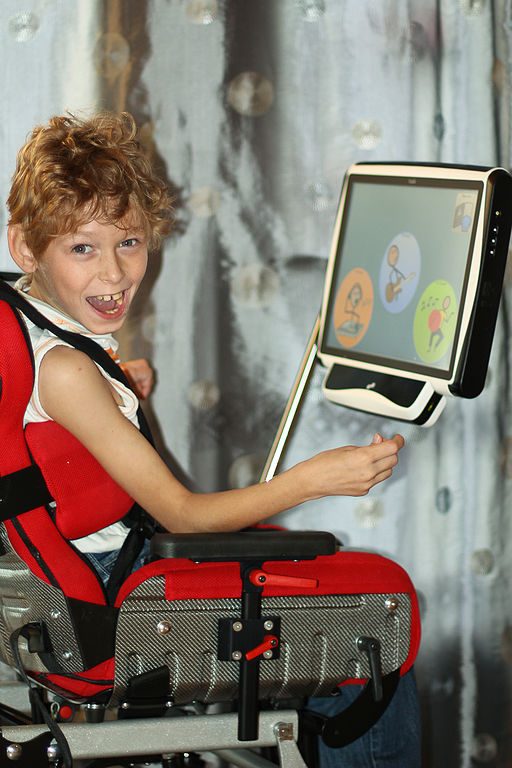
How We Help
Our Work Supports People Who Use AAC

Improving Communication
Outcomes for AAC Users

Communication Supports for
Children, Youth, & Adults

Training & Resource Links
What We Are Doing
Our Projects

TAALC Communication Project & ECHO in AAC
TAALC (Teaching Age Appropriate Learning through Communication) Project supports teachers and speech language pathologists to provide communication interventions for students with complex communication needs. Our ECHO® in AAC is an inter-professional practice network where education and related service providers learn together. Our team includes Speech Language Pathologists, General and Special Educators, Occupational Therapists, Physical Therapists, Vision Experts, and Audiologists.
Review details on each TAALC communication strategy under Our Resources, below.
Training Registration
Goto TAALC ECHO® in AAC registration information.
TAALC Topics is a live Communication and AAC Webinar Series. Go to Registration details
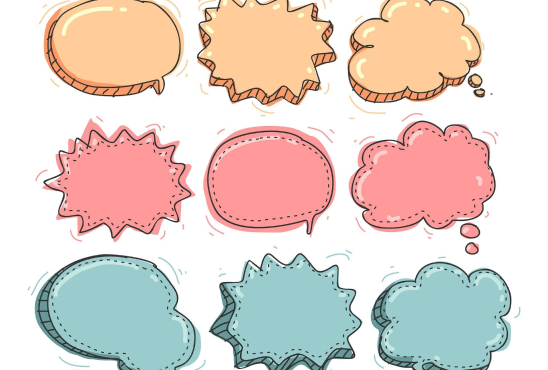
SPEAC-OUT
SPEAC-OUT (Special Education and Communication-Interdisciplinary Training) is a scholarship program for special educators seeking a master’s degree in Moderate and Severe Disabilities and students seeking licensure in speech language pathology. Scholars participate in high-quality shared learning experiences, including interdisciplinary coursework, seminars, technology-enhanced integrated practicum experiences, technology delivered instructional practices, and collaborative assignments. Tuition stipends are provided.
Scholarships are available!
Email Judy Page (page01@uky.edu) for more information.
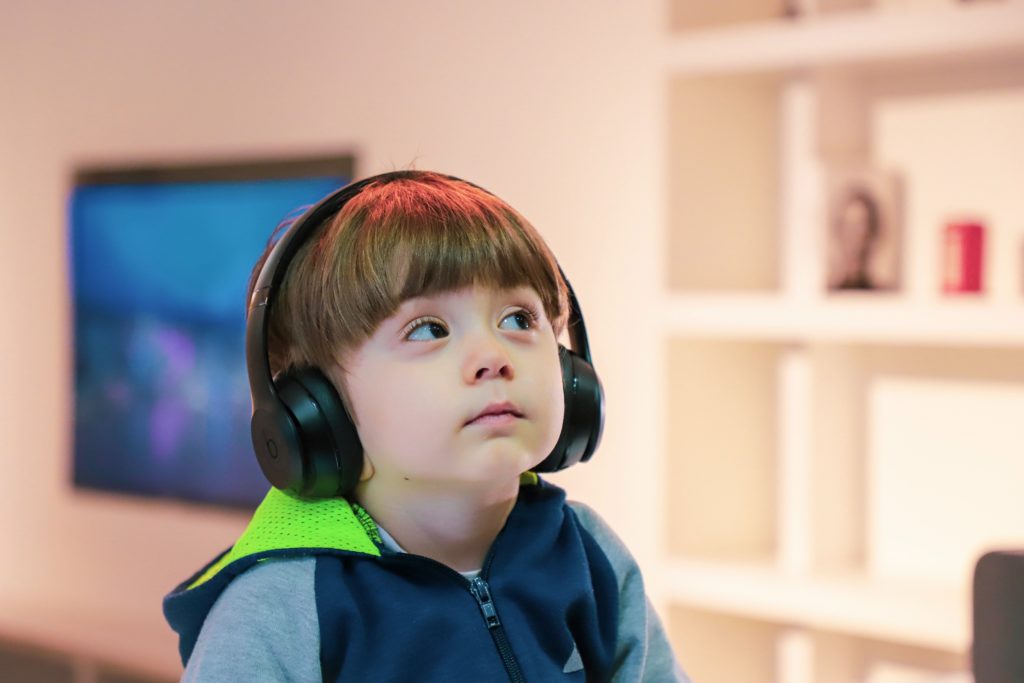
Training & Resources
KY Speaks AAC provides free online learning opportunities and live webinar trainings. Select the registration link to a learning series below to register:
WEBINARS
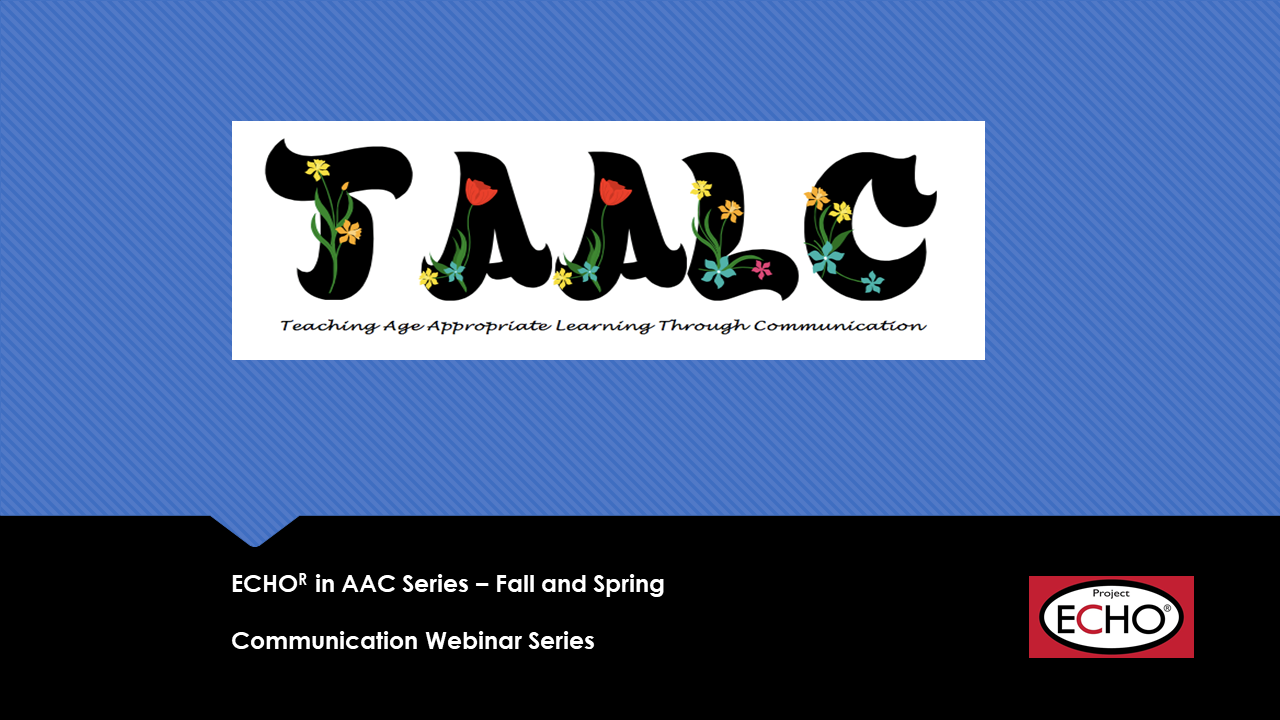
Upcoming ECHO® in AAC Series
ECHO® is an evidence-based professional learning practice. Our ECHO® in Augmentative Alternative Communication (AAC) Webinar Series provides teaching presentations and case study problem-solving opportunities for school teams addressing the complex communication needs of AAC Users. Project ECHO® is an inter-professional practice network where education and related service professionals learn together through short, informational presentations on AAC topics and case-specific presentations. Case presentations allow participants to support a colleague through real-time problem solving; identification of possible strategies and solutions to support the individuals they serve.
Interested in presenting a case?
TAALC is actively recruiting teams who have a student struggling with communication and would like ideas/strategies they can implement. If you would like to present a case during one of the ECHO® in AAC sessions, submit this form.
TAALC Topics
The TAALC Communication Project provides a professional learning live webinar series for educators Interested in learning about and improving communication outcomes for students with complex communication needs.
ONLINE LEARNING
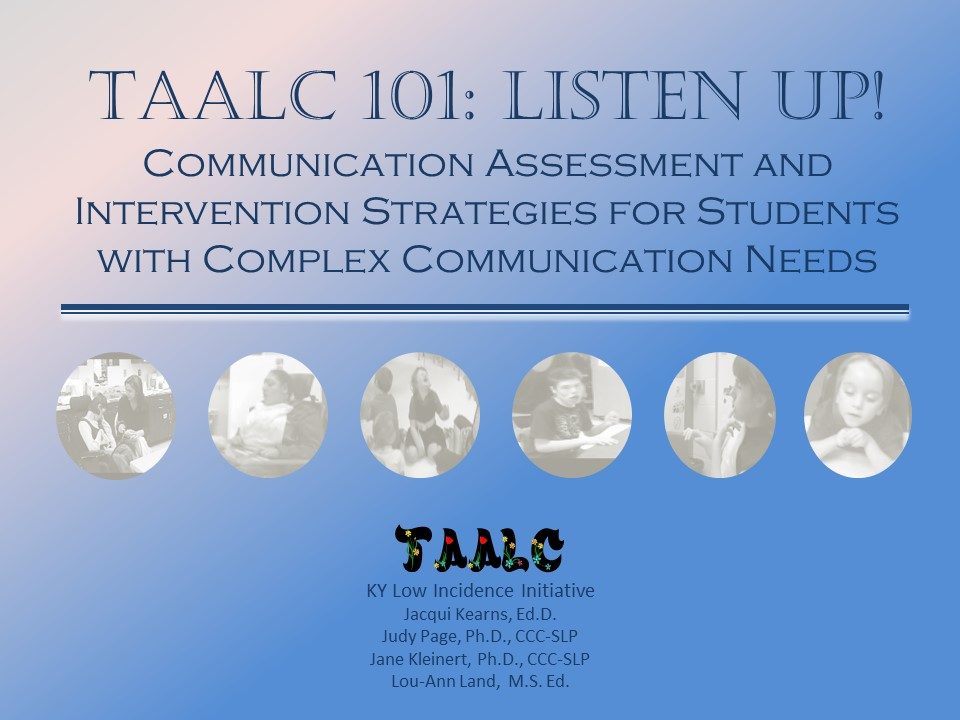
TAALC 101: Listen Up! (4.5 hours)
The TAALC Communication Project provides an independent professional learning series for teachers, speech language pathologists, and instructional assistants. Each module is approximately 20 minutes in length on an important topic in the use of AAC (4.5 ASHA CEUs and continuing education credit certificates available).
TIES 101: Communication Supports in the Inclusive Classroom (1 hour)
The TIES Center & University of Kentucky Human Development Institute are offering this online professional learning series provides evidence-based strategies for supporting AAC users in inclusive classrooms (1.0 ASHA CEU).
Communication 206
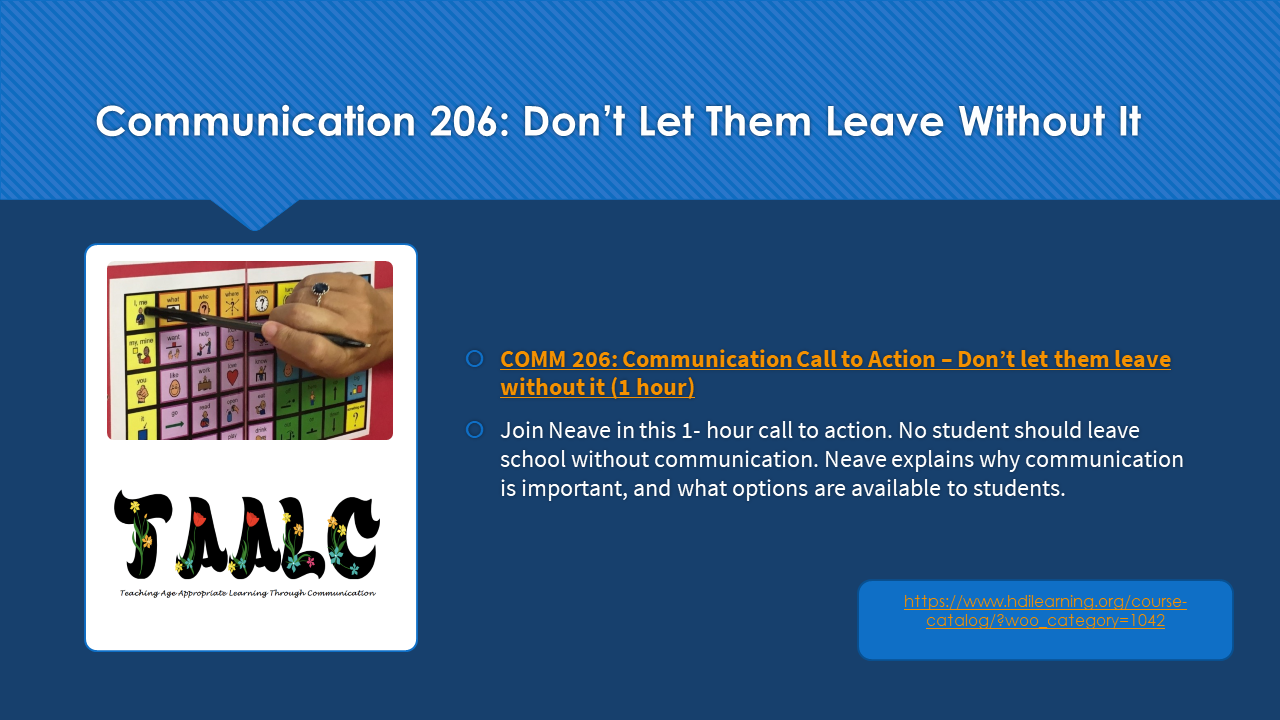
Communication 206: Don’t Let Them Leave Without It: Administrator Call to Action (1 hour)
Join this 1-hour call-to-action. No student should leave school without communication. Naeve explains why communication is important, and what options are available to students.
Communication 209
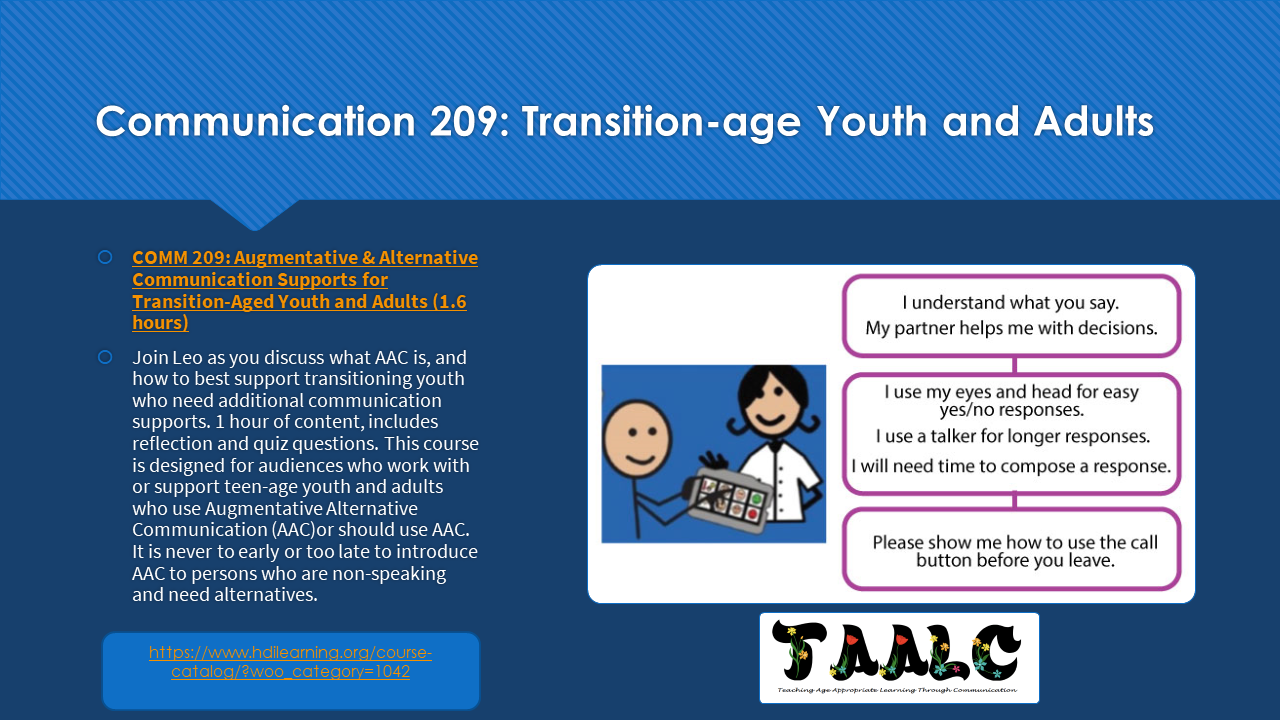
Communication 209: Transition-Age Youth & Adults (Professional Learning Certificate – 1.6 hours)
Join Leo as you discuss what AAC is and how to best support transitioning youth who need additional communication supports. This 1.6 hour course is designed for audiences who work with or support teen-age youth & adults who use/should use AAC. It is never too early or late to introduce AAC to persons who are non-speaking & need alternatives.
TAALC 114
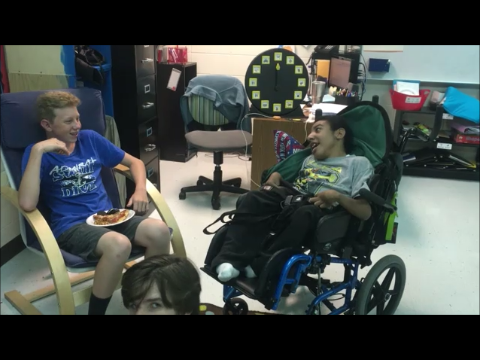
TAALC 114: PreK-12 Peer-Mediated Strategies for Students with Complex Communication Needs (Professional Learning Certificate – 2 hours)
Peer relationships in school can enhance students’ communication, academic engagement, and learning within and beyond the classroom. Students with complex communication challenges may need extra support to develop peer bonds. Join language arts teacher Marcus and special ed co-teacher Sonja, as they discuss how to implement peer-mediated strategies for non- or minimally speaking students.
What We’ve Done
Our Resources
TAALC ECHO Collaborative in AAC: Archived Webinars
Short 20-minute learning presentations.
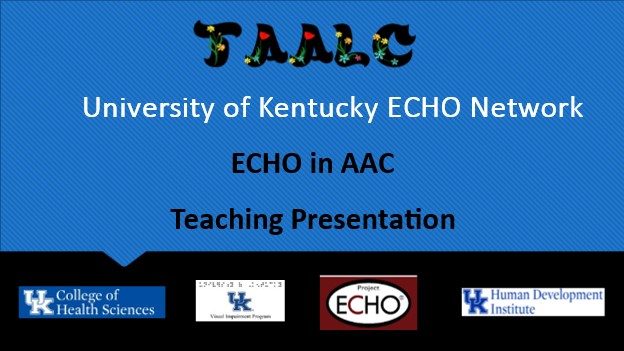
See our archived webinars here.

TAALC Communication Strategies
Teaching Academic Age-Appropriate Learning via Communication (TAALC) Strategies
The underlying premise of TAALC is all students can and do communicate, and TAALC presentations are designed to provide training and experience in identifying communicative competence for students with complex communication needs. The TAALC Project is funded by the KY Department of Education.
Select a communication strategy listed below to learn more about how to implement each strategy.
Partner-assisted scanning is a communication strategy for students who have a consistent confirmation or rejection of offered choices. This confirmation or rejection can take the form of eye gaze, ...
Aided Language Modeling requires the communication partner to model the use of the AAC device by simultaneously touching the symbols for key words while saying the words of the ...
Peer-mediated supports are evidence based strategies that involve identifying and equipping a group of peers to provide ongoing support to students with significant disabilities in or outside of the ...
To reflect, interpret, and expand on a student’s unique communication, is to vocalize what the behavior (facial expression, body language, or vocalization) is communicating and expand that communication by ...
Words represented by symbols and used frequently and flexibly across the day are more likely to be learned by a student. Core words include verbs, adjectives/adverbs, and ...
The AAC strategy to identify preferences is the identification of activities and people that appear to engage a student with communication challenges. These preferences can then be used to ...
Teaching Peers to Support AAC Users
Teaching peers about Augmentative Alternative Communication (AAC) gets easier and easier. Whether elementary age or high school students there are many ...
Communication Bill of Rights

All people with a disability of any extent or severity have a basic right to affect, through communication, the conditions of their existence. Beyond this general right, a number of specific communication rights should be ensured in all daily interactions and interventions involving persons who have severe disabilities.
From the National Joint Committee for the Communication Needs of Persons with Severe Disabilities (NJC)

